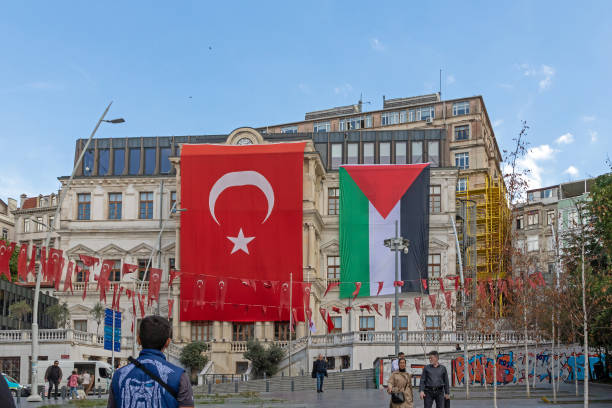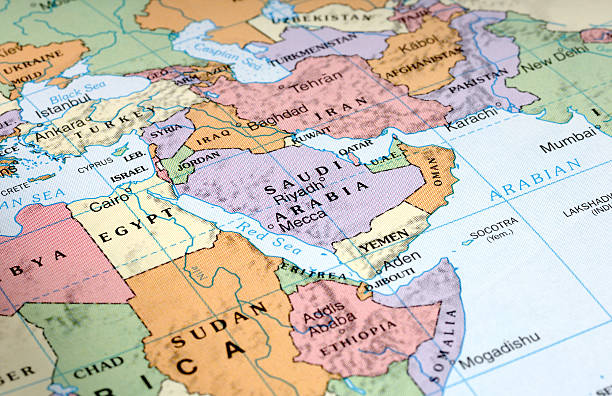The October 7 Hamas assault was a shock for the Israelis. It should not have been. As I mentioned in an earlier post, some foresaw that trouble was in the making. The following is from an International Crisis Group statement of March 21, 2023, titled “Persistent Violence in Israel-Palestine Could Escalate Further”:
“Tensions have been rising for the past few months, fueled by a combination of factors. Among them are deadly Israeli military raids in Palestinian population centers in the West Bank; killings of Israelis by individual Palestinians; mob rampages by Israeli settlers; incendiary statements by members of Prime Minister Benjamin Netanyahu’s new far-right government and the Knesset; a restless and militarily potent Hamas in the Gaza Strip; and a Palestinian Authority (PA) that has, in many Palestinians’ eyes, lost legitimacy as its security apparatus starts to break down.”
The Hamas attack was a huge intelligence failure for Israel since its preparation must have taken months and months if not years. The reason for the failure was Israeli overconfidence in its intelligence capabilities and the impression that Palestinians were subdued for good.
The war in Gaza, the world’s most densely populated area, will be long and bloody confronting the world with yet another challenge.
What must have surprised many countries is the AKP government’s lack of anger control and its extremely pro-Hamas and anti-Israel rhetoric going far beyond the criticism directed by Arab countries against Tel Aviv. Why did President Erdoğan and his party choose to take this path? Because,
- Such rhetoric rhymes with AKP’s Islamic public discourse.
- It helps solidify their conservative power base ahead of the March 2024 municipal elections.
- It paves the ground for opening Türkiye’s borders this time to a wave of Palestinian refugees, on top of the millions of refugees from Syria who are here mostly as a result of AKP’s misguided Syria policy, not to mention hundreds of thousands from elsewhere.
- The Gaza war created a “regional emergency” overshadowing the centennial celebrations for the founding of the Turkish Republic under the forward-looking leadership of the hero of our War of Independence, Atatürk. This, no doubt, would lead to further polarization, our number one national challenge but a non-issue for the government.
Nonetheless, the AKP might also have some other ideas inspired by Ankara’s role in securing the Black Sea Grain Initiative and an exchange of prisoners between Russia and Ukraine. Otherwise, what is said until now would remain mere words, empty rhetoric.
So, why not, for example, convince Hamas to set free a significant number of hostages and score points on the diplomatic front? The problem here would be the price to be demanded by Hamas for such an act of “benevolent generosity”. Because, in the Middle East bazaar, even those hanging by the thread almost always bargain for more. Would total political/diplomatic support for Hamas convince its leadership that Ankara has given them all it can, or is there still more it can ask for? Only time will tell, and it may not take too long.
Whatever the future has in store, for the time being, Ankara has ceased to be an interlocutor not only for many of its NATO allies but the regional countries as well. Today, the principal supporter of Hamas Iran’s Foreign Minister Abdullahiyan is visiting Ankara. Why should our Iranian neighbors miss an opportunity that is offered to them on a golden plate? Whatever its purpose, the visit would not have a positive impact on Ankara’s relations with the Gulf states.
Hamas’s being a terrorist organization in no way justifies Prime Minister Netanyahu’s total disregard for the lives of the civilian population of Gaza. The mounting death toll of ordinary Gazans is a crime. The bombing of the Jabalya refugee camp yesterday was an act of mass murder. All Gazans are not terrorists. Arab leaders who signed the Abraham Accords must now repent partnering with Mr. Netanyahu. Israel’s friends and allies should try to convince him, who is just another power-addicted Middle East leader, that he is on the wrong path. Humanitarian pauses and ceasefires will not only ease the suffering in Gaza but also allow world leaders time to think, consult, and chart a course. Is there not enough hatred already between the parties to the war?
Unfortunately, Israel’s and particularly the longest-serving Prime Minister Netanyahu’s disregard for the Palestinian expectations for higher standards of living, education, healthcare, and an end to being third-class citizens has turned Hamas into a hope. But the tragedy of the Palestinians has always been the lack of enlightened leadership with a coherent worldview, a sound understanding of the challenges ahead, and what exactly needs to be done to move toward the two-state solution. Hamas may have reminded Israel and the world that the question of Palestine remains dangerously unresolved, but it would not the able to provide the kind of leadership the people of Palestine desperately need.
The 100th anniversary of the founding of a republic is an important date for any country, all the more so if it follows a war of independence. Thus, millions and millions of Turks filled the Atatürk Mausoleum in Ankara, gathered before Atatürk statues across the country, decorated their homes with Atatürk’s photographs and flags to celebrate the 100th anniversary of the declaration of our Republic, and expressed, again and again, their everlasting gratitude to him.
On October 29, Secretary Blinken issued a statement on the occasion of the Turkish National Day.[i] Secretary Blinken and his staff should have known that a statement on the 100th anniversary of the founding of the Turkish Republic with no mention of Atatürk is of no value for millions and millions of Turks, eternally proud of their founding father.
As expected, Joe Biden, Türkiye’s number one adversary in US politics since July 4, 1776, had nothing to say on the occasion. Turks could not care less.
———————————————————————————————————-










